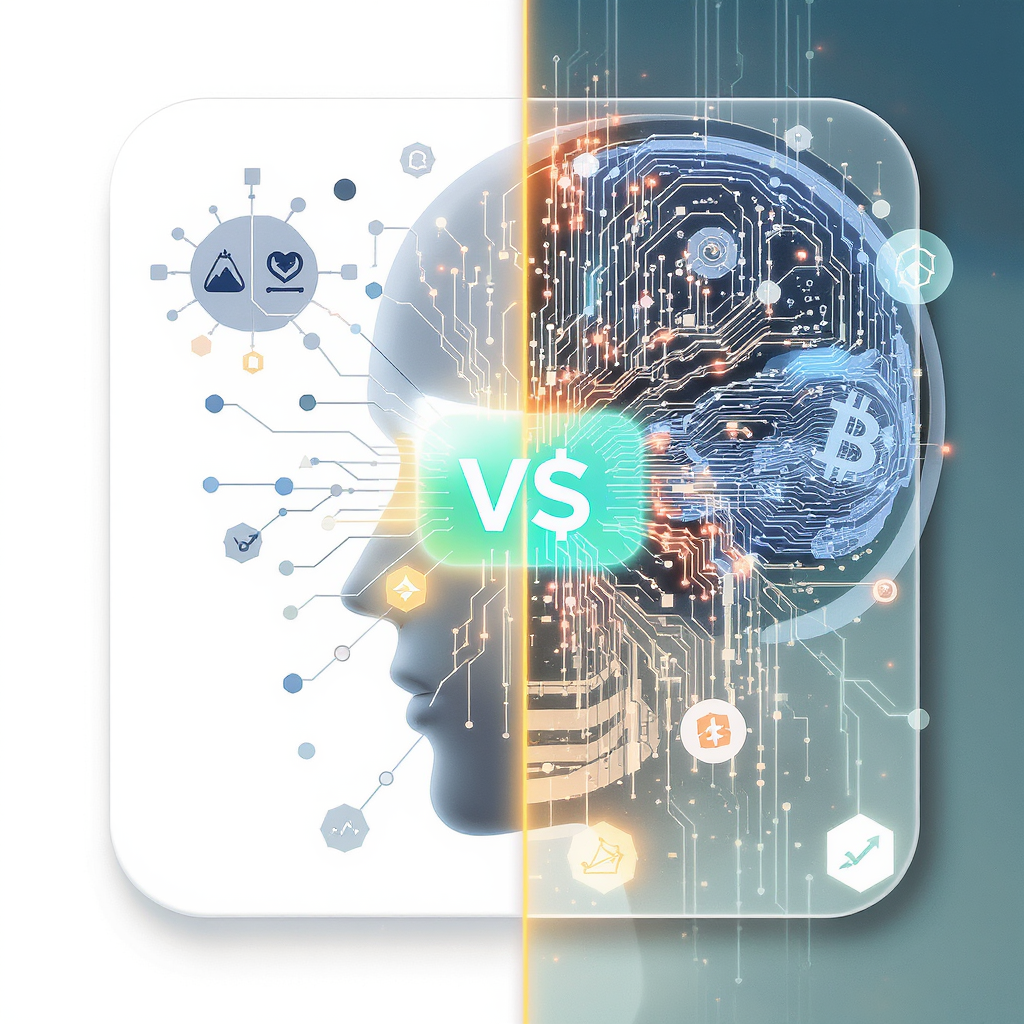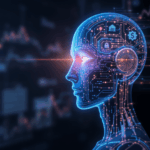The intersection of artificial intelligence (AI) and blockchain technology is rapidly transforming numerous industries, and algorithmic trading is no exception. This article explores the synergistic relationship between these two powerful technologies, examining how their convergence is revolutionizing the financial markets. We will delve into the specific ways AI enhances algorithmic trading strategies, the role of blockchain in ensuring transparency and security, the challenges and limitations of this convergence, and finally, consider the future implications for both technologies and the trading landscape. We’ll also discuss potential risks and the ethical considerations inherent in deploying such sophisticated systems. The ultimate goal is to provide a comprehensive overview of this exciting and rapidly evolving field.
AI-Powered Algorithmic Trading Strategies
Artificial intelligence significantly boosts the capabilities of algorithmic trading. Traditional algorithmic trading relies on pre-programmed rules and models. AI, however, introduces machine learning and deep learning algorithms that can analyze vast datasets—including market data, news sentiment, social media trends, and even macroeconomic indicators—to identify patterns and predict market movements with greater accuracy. This allows for the development of more sophisticated and adaptive trading strategies. AI can also automate tasks like order execution, risk management, and portfolio optimization, freeing up human traders to focus on higher-level strategic decisions.
Blockchain’s Role in Enhancing Security and Transparency
Blockchain technology, with its immutable ledger and decentralized nature, provides a robust framework for enhancing the security and transparency of algorithmic trading. By recording every trade on a secure, distributed ledger, blockchain eliminates the possibility of manipulation or fraud. It also increases transparency by making trading data readily accessible to all authorized parties. Smart contracts, self-executing contracts with the terms of the agreement between buyer and seller being directly written into lines of code, can automate trading processes and reduce the risk of human error. This can lead to greater efficiency and lower costs.
Addressing Challenges and Limitations
Despite the significant advantages, the convergence of AI and blockchain in algorithmic trading presents several challenges. The computational resources required to train and run sophisticated AI models can be substantial. Furthermore, the complexity of integrating AI and blockchain systems can be significant, requiring specialized expertise. Regulatory uncertainty is another hurdle, as the legal frameworks surrounding AI and blockchain in finance are still evolving. There’s also the potential for algorithmic bias—AI models trained on biased data can perpetuate and even amplify existing market inequalities. Finally, ensuring the security of both AI algorithms and blockchain networks against cyberattacks is paramount.
The Future of AI and Blockchain in Algorithmic Trading
The future of algorithmic trading is inextricably linked to the ongoing advancements in AI and blockchain. We can expect to see more sophisticated AI models that can adapt to dynamic market conditions in real-time. Blockchain will likely play an increasingly crucial role in enhancing the security, transparency, and efficiency of decentralized finance (DeFi) applications for trading. The integration of these technologies will lead to the development of more efficient and transparent markets, potentially reducing costs and increasing accessibility for a wider range of investors. However, addressing the ethical considerations and regulatory challenges will be crucial to ensure responsible innovation and prevent unintended consequences.
Conclusion
The convergence of AI and blockchain technology is poised to revolutionize algorithmic trading. AI significantly enhances the predictive power and efficiency of trading strategies, while blockchain provides a secure and transparent infrastructure. While challenges like computational costs, integration complexity, and regulatory uncertainty remain, the potential benefits are substantial. The future likely holds more sophisticated AI models, greater adoption of blockchain in DeFi, and a more efficient and transparent financial market. However, responsible development and careful consideration of ethical implications are essential to harness the full potential of this powerful combination while mitigating potential risks. The successful integration of these technologies will require collaboration between researchers, developers, regulators, and the wider financial community.
| Technology | Benefits | Challenges |
|---|---|---|
| AI | Improved prediction accuracy, automation of tasks, adaptive strategies | High computational costs, potential for bias, complexity of model development |
| Blockchain | Enhanced security, increased transparency, automation through smart contracts | Scalability issues, regulatory uncertainty, vulnerability to attacks |
References
Investopedia: Algorithmic Trading
Coindesk: Blockchain, AI convergence set to transform finance, says report
Image By: Black Forest Labs






